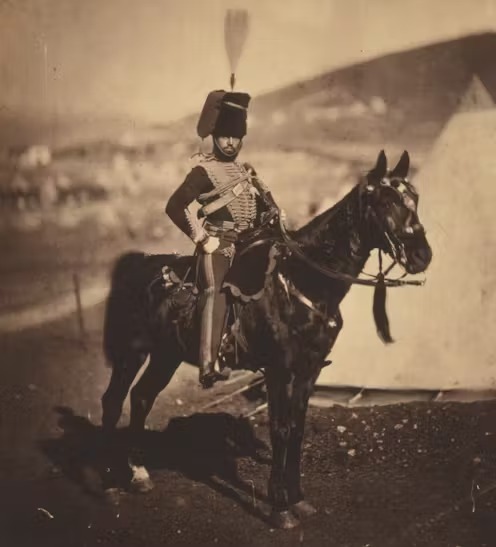
Selma Kadic-Maglajlic
Associate Professor of Marketing, Copenhagen Business School
Selma Kadić-Maglajlić holds a PhD in Marketing from the University of Ljubljana, Slovenia. Currently she is an Associate Professor of Marketing in the Department of Marketing at Copenhagen Business School. She is a marketing academic, with previous experience from the automotive, entertainment and media industries, and is passionate about helping organizations to optimize their sales and marketing strategic decisions using strong and rigorous analytics. She works with sales organizations to solve problems and optimize their sales activities based on the empirical findings. Selma's research has been published in various international journals. She is an accomplished TEDx speaker, educator and coach. Selma Kadic-Maglajlic is a member of the European Marketing Academy and the American Marketing Association.
Less ![]()
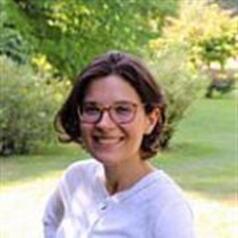
Selma Wather
Senior Lecturer in Economics, University of Sussex
I am an applied microeconomist. I hold a BA (Hons), MPhil and PhD in Economics from the University of Cambridge and was previously a Postdoctoral Prize Research Fellow at the University of Oxford. My research focuses on labour economics, with a particular interest in family economics.
Less ![]()

Selma A. Purac
Assistant Professor of Media Studies, Western University
Selma A. Purac, PhD, is an Assistant Professor in the Faculty of Information and Media Studies at Western University, where she offers a series of courses focusing on promotional culture. Accordingly, much of her scholarship centers on critiques of consumerism, particularly those critiques that expose the interplay between capitalism and horror. Most recently, her work has appeared in the pages of The Weird: A Companion (2024), Capture Japan (2022), and Monstrum (2021). She has also appeared on TVO’s The Agenda and the CBC miniseries Stay Tooned, exploring the commercialism behind popular media.
Less ![]()
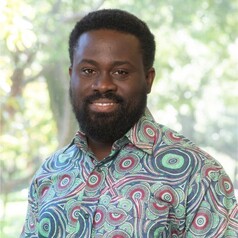
Selorm Yaotse Dorvlo
Senior lecturer, University of Ghana
Selorm Yaotse Dorvlo is an agricultural mechanisation expert and a senior lecturer at the Department of Agricultural Engineering, University of Ghana. His research focuses on developing sustainable agricultural mechanisation strategies for smallholder rice farmers in Ghana, assessing the potential of biomass conversion to energy within the agricultural production sector, and designing innovative and suitable agricultural machinery.
Selorm is also a professional engineer registered with the Ghana Institution of Engineering. He has been involved in various research projects through grants he has received, such as the post-doctoral fellowship with the Food Systems Research Network for Africa (FSNet-Africa), the Feed the Future Grant for Early Career researchers, and the ARUA-CCNY Early Career research fellowship. He is on a one-year research fellowship at the ARUA Centre of Excellence in Sustainable Food Systems at the University of Pretoria.
His educational credentials are as follows: a doctorate in agricultural engineering obtained in 2018 from Kwame Nkrumah University of Science and Technology, a Master of Philosophy in agricultural engineering with specialisation in machine systems acquired in 2013 from the University of Ghana, and a Bachelor of Science degree in agricultural engineering, earned in 2010 from the University of Ghana.
Less ![]()
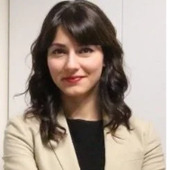
Semahat Ece Elbeyi
Postdoctoral fellow in the Department of Communication, University of Copenhagen
Less ![]()
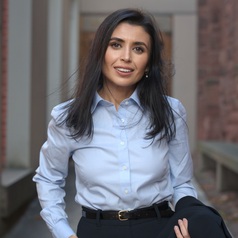
Semra Sevi
Banting Postdoctoral Researcher, Department of Political Science, Columbia University. Incoming Assistant Professor of Canadian Politics, Department of Political Science, University of Toronto
Semra Sevi is a Banting postdoctoral researcher in the Department of Political Science at Columbia University and a visiting scholar at McGill University with the Institute for the Study of Canada.
Beginning in July 2023, she will be an Assistant Professor of Canadian Politics in the Department of Political Science at the University of Toronto.
Broadly speaking, she is interested in voting behaviour, political representation, public opinion, legislative politics, women & politics, partisanship and political methodology.
Before Columbia, she earned her PhD in the Department of Political Science from l’Université de Montréal and her Honours BA and MA from the University of Toronto.
Less ![]()
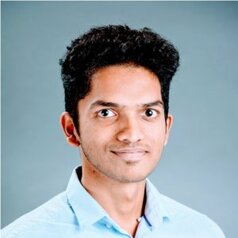
Senthilkumar Duraivel
Ph.D. Candidate in Materials Science and Engineering, University of Florida
Senthilkumar Duraivel is a graduate student from the Department of Materials Science and Engineering at the University of Florida. He received his B.Tech degree in Rubber and Plastics Technology from Madras Institute of Technology, Chennai, India in 2017. He joined the Angelini lab on Fall 2018. Senthil's research work focuses on genome sequencing based on a 3D printing method which uses jammed microgel systems as the 3D printing space and on developing low viscous microgels for 3D printing of silicone
Less ![]()

Seona Lee
PhD student, International Centre for Radio Astronomy Research, The University of Western Australia
Less ![]()

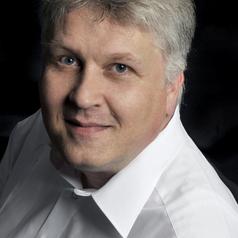
Sepp Hochreiter
Johanne s Kepler University Linz
Sepp Hochreiter is heading the Institute for Machine Learning, the LIT AI Lab at the JKU Linz and is director of private research institute IARAI. He is a pioneer of Deep Learning as he discovered the famous problem of vanishing or exploding gradients and invented the long short-term memory (LSTM).
Less ![]()
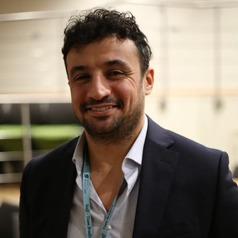
Serag El Hegazi
Lecturer in the Department of Peace Studies and International Development, University of Bradford
I am a Lecturer in Project Management at the MSc Project Planning and Management. I hold a PhD from the University of Bradford for a work on Sustainability Development and Smart Cities. I have a Master's Degree in Project Planning and Management and, a BSc (Hons) In Civil Engineering from Applied Science University. I am also a Fellow of the UK Higher Education Academy. My research interests focus on sustainable development in the MENA region and the development of sustainability elements indicators and the Sustainable Development Goals (SDGs) at the local level of local government.
I am experienced in the management and leadership of teaching and have in-depth program enhancement, leadership, and development experience at both undergraduate and postgraduate levels. During my MSc and PhD journey at the University of Bradford, I have organised and participated in several events. These included working with different groups for fundraising and international day events. These activities included World Toilet Day, Holocaust, Genocide Memorial Day, and the SDG (Sustainable Development Goals Awareness Day.
Currently, I am a member of the Development Studies Association (DSA) and I have participated in several conferences including presenting several papers, DSA 2018 - Manchester University, DSA 2020, Good institutions or Good Leadership in regards to Sustainable Development and the Doctoral Conference at the school of management in the University of Bradford.
Less ![]()
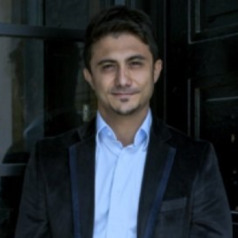
Sercan Ozcan
Reader in Innovation and Technology Management, University of Portsmouth
I am a Reader (Assoc. Professor) of innovation and technology management. My research focuses on the intersection of innovation management and data science, with a particular emphasis on science, technology & innovation (STI) intelligence, technology foresight, and technology roadmapping.
I have also conducted research on policy development and assessment of emerging technologies such as blockchain, AI, and nanotechnology. To support my work, I use a variety of research methods including text intelligence, natural language processing, machine learning, patent analysis, scientometrics, and social media analytics.
My research is informed by theories and models such as diffusion of innovations, systems of innovation, and general purpose technology. I published in the top journals of innovation management and engineering management fields. I worked as a project lead and consultant in various innovation management and text intelligence-related projects.
Less ![]()


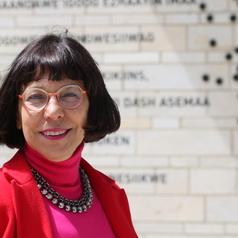
Serena Keshavjee
Professor, History, University of Winnipeg
Serena Keshavjee grew up in Kenya and immigrated to Toronto with her family in 1969. She lives in Winnipeg, where she teaches Modern art and architecture at the University of Winnipeg. Her academic work focus on how artists use science, especially in the Modernist period.
Less ![]()
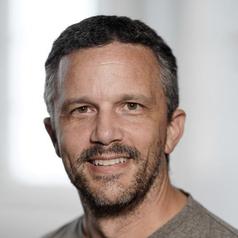
Serge Belongie
Professor, University of Copenhagen
Professor of Computer Science, University of Copenhagen
Director, Pioneer Centre for Artificial Intelligence
Less ![]()
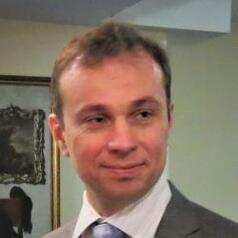
Sergei Lebedev
Professor of Geophysics, University of Cambridge
Sergei Lebedev has received a PhD in geophysics from Princeton University in 2000 and was a researcher at MIT and Utrecht University before joining the Dublin Institute for Advanced Study as Mallet Assistant Professor of Seismology in 2008. His research interests include seismic imaging of the Earth’s interior and the structure and evolution of the crust and underlying mantle. His research within the iCRAG Geophysics Platform is on development and application of new methods for processing and inversion of very large seismic and other geophysical datasets.
Less ![]()

Sergey Katsuba
PhD Candidate, Sutherland School of Law, University College Dublin
Sergei Katsuba is a PhD Candidate at the Sutherland School of Law, University College Dublin (UCD). He graduated with a degree in law from the Buryat State University in Ulan-Ude, Russia. He then completed a two years Master’s program at National Cheng Kung University in Taiwan.
Sergei’s research is in the area of freedom of expression, autocratization in Russia, LGBTQ rights, and hate crimes against LGBTQ in Russia. Sergei is developing a system of monitoring the hate crimes against LGBTQ in Russia. To date, the research project was able to identify more than 1000 hate crimes against LGBTQ in Russia. In 2022 the data on hate crimes generated by the research was submitted to the OSCE as a part of the annual civil society submission on hate crime incidents in Russia.
Sergei has a keen interest in the areas of Human Rights Law, International Law, and the study of authoritarianism.
Less ![]()
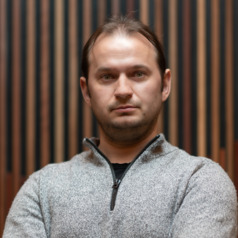
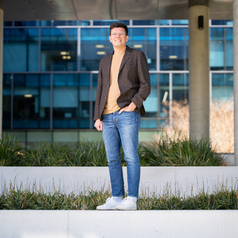
Sergey Timonin
Research Fellow in Demography, School of Demography, Australian National University
I am a demographer currently based at the ANU School of Demography. Prior to joining the Australian National University, I worked mainly at the major universities in Moscow (Russia), and was a guest researcher at the Max Planck Institute for Demographic Research in Germany.
My main research interests are mortality and population health. I have worked extensively on understanding geographical and socioeconomic inequalities in life expectancy in Eastern Europe, high-income countries and now Australia; examining the contribution of causes of death to changes and differences in longevity; and estimating mortality associated with the Covid-19 pandemic and non-optimal weather conditions.
Less ![]()
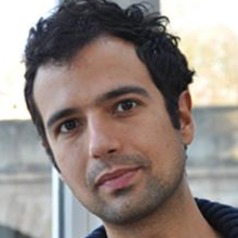
Sergi Pardos-Prado
I work on two main lines of research. The first deals with political behaviour and comparative politics questions in Europe, and the second deals with the impact of migration processes on public attitudes and political outcomes. More specifically, I have devoted some time now to analyse how the immigration issue is incorporated into patterns of political competition and affects electoral outcomes, both in countries with and without a prominent anti-immigrant party in Parliament.
Regarding my political behaviour and comparative politics line of research, I am working on a number of projects assessing the conditional effect of institutions, media discourse and party system characteristics on different forms of voting, including proximity, directional, and valence voting. I am also studying the interaction between power-sharing institutions and traditional individual-level predictors of electoral turnout. Finally, I am also interested in the formation of subjective perceptions of the national economy, and the moderating effect of personal socioeconomic circumstances and party messages in this process.
As for my research on immigration, I mostly analyse patterns of xenophobia and racism from a comparative perspective in Europe. More specifically, I deal with the direct or indirect impact of several predictors on attitudes towards immigration, namely personality traits, local and national levels of ethnic diversity, and ideological predispositions. More recently I have also implemented longitudinal analyses of xenophobia over individual life cycles using panel data, and survey experiments assessing the impact of different forms of ethnic diversity on the willingness to redistribute resources in a given community.
Less ![]()
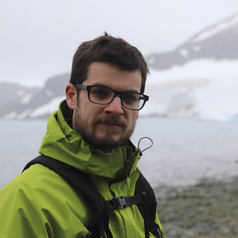
Sergi González Herrero
Científico atmosférico, Universitat de Barcelona
Licenciado en Ciencias Ambientales por la Universitat Autònoma de Barcelona en 2008
Máster en Meteorología por la Universitat de Barcelona en 2010
Doctor en Física, especialidad meteorología en la Universitat de Barcelona en 2019
Ha trabajado como meteorólogo en la Agéncia Estatal de Meteorología (AEMET) desde 2010
y formó parte del Grupo Antártico de la AEMET des de 2016.
Actualmente realiza un postdoctorado en el Instituto para el estudio de la Nieve y las Avalanchas en Davos, Suiza y forma parte del grupo de investigación ANTALP associado a la Universidad de Barcelona.
Ha realizado 3 campañas Antárticas, una campaña en las montañas del Pamir y distintas en montañas de Europa.
Less ![]()
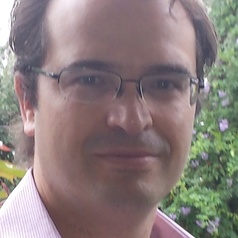
Sergio Diez Alvarez
Director Of Medicine, The Maitland and Kurri Kurri Hospital, University of Newcastle
I have a medical degree from University of Witwatersrand in South Africa and I am a specialist physician with Fellowship from several international colleges including FRACP.
Less ![]()
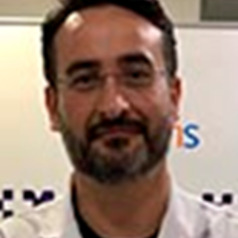
Sergio Flores Villar
Médico adjunto del Área de Hospitalización Pediátrica y Responsable de Cardiología Pediátrica del Hospital Universitario MutuaTerrassa, Universitat de Barcelona
RESPONSABLE DE LA CARDIOLOGIA PEDIÁTRICA DEL HOSPITAL UNIVERSITARIO MÚTUA DE TERRASSA
LICENCIADO EN MEDICINA Y CIRUGIA A LA FACULTAD DE MEDICINA Y CIRUGIA DE LA UNIVERSIDAD DE BARCELONA (UB) (1992-1998)
FORMACIÓN MIR DE PEDIATRIA Y SUS ÁREAS ESPECIFICAS EN EL HOSPITAL MATERNO-INFANTIL VALLE DE HEBRON DE BARCELONA (1999-2003)
TÍTULO DE ESPECIALISTA EN PEDIATRIA Y SUS AREAS ESPECÍFICAS (2003)
Less ![]()
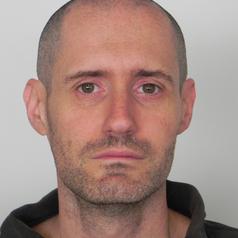
Sergio Rossi
Professor, Département des Sciences Fondamentales, Université du Québec à Chicoutimi (UQAC)
My research focuses on quantitative ecology and ecophysiology, and in particular on modelling the complex responses of plants to multiple environmental factors and predicting the phenological adaptation of trees to climate changes. Investigations include long-lasting observations in permanent plots across wide geographical ranges, manipulated experiments in nature, assisted migration of ecotypes, and experimental designs under strictly-controlled environments. My actual projects are related to the dynamics of tree growth and reproduction at local to global scale and how the effects of climate change on forest productivity can be taken into account by the new strategies of forest management. I am considered a pioneer of the studies on wood formation in temperate and cold ecosystems and treeline ecotones. I have successfully realized several meta-analyses on the recurrent timings of tree growth across the Northern hemisphere.
Mes recherches portent sur l'écologie quantitative et l'écophysiologie, et en particulier sur la modélisation des réponses des plantes aux facteurs environnementaux et sur la prédiction de l'adaptation des arbres aux changements climatiques. J’utilise des outils scientifiques qui impliquent les observations de longue durée récoltées dans des parcelles permanentes sur de vastes régions géographiques, les expériences de manipulation en nature, la migration assistée d'écotypes et les designs expérimentaux dans des milieux contrôlés. Mes projets actuels portent sur la dynamique de croissance et de reproduction des arbres à échelles spatiales variées, de celle locale à celle globale, et sur la prise en compte des effets du changement climatique sur la productivité forestière par les nouvelles stratégies d’aménagement. Je suis considéré comme l’un des pionniers des études sur la formation du bois dans les écosystèmes tempérés et froids et d’écotones de la limite de la forêt. J'ai réalisé plusieurs méta-analyses sur le calendrier intra-annuel de croissance des arbres à travers l'hémisphère boreal.
Less ![]()
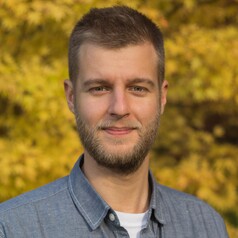
Sergio Vila Tojo
Investigador posdoctoral en psicología social aplicada al medioambiente, Universidade de Santiago de Compostela
Doctor en psicología y miembro del grupo de investigación COSOYPA (Comportamiento Social y Psicometría Aplicada) y del CRETUS (Centro Interdisciplinar de Investigación en Tecnologías Ambientales). Su principal línea de investigación es el análisis de la percepción y la aceptación social de distintas soluciones tecnológicas a problemas ambientales a través varios proyectos multidisciplinares de ámbito europeo y nacional. En 2022, recibe el Premio de Investigación Ernesto Viéitez Cortizo en la modalidad de promoción de jóvenes investigadores menores de 30 años concedido por la Real Academia Gallega de las Ciencias (RAGC) a raíz de una publicación en Water Research sobre aceptación pública del agua reciclada.
Less ![]()
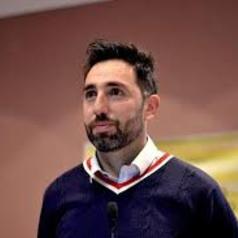
Sergio García Magariño
Investigador de I-Communitas, Institute for Advanced Social Research, Universidad Pública de Navarra
Áreas temáticas: radicalización violenta, seguridad colectiva, gobernanza y desarrollo.
Actualmente vivo en Pamplona y dirijo una investigación sobre radicalización violenta en la UPNA. Antes de ello estaba en Madrid, dando clases en la UCJC y CEDEU/URJC, y dirigiendo el área de investigación y discurso de la Oficina de Asuntos Públicos de la comunidad bahá'í de España. He vivido muchos años en Latinoamérica, donde puede hacerme consciente de la necesidad del conocimiento, de la educación y de nuevas estructuras de aprendizaje que se dediquen al empoderamiento de las masas, a fin de crear una sociedad global más justa, sostenible y pacífica. Dentro de este contexto, me parecen especialmente relevantes las dinámicas de la gobernanza, el desarrollo y la seguridad, tres áreas a las que he prestado particular atención en los últimos años. En mi web (sergarcia.es) puedes conocer más de mí, ver mis libros y artículos académicos, así como mi labor con el Instituto para el Conocimiento, la Gobernanza y el Desarrollo globales (ICGD). El ICGD pretende ser una de esas nuevas estructuras que facilitan el aprendizaje para el cambio social positivo.
Less ![]()
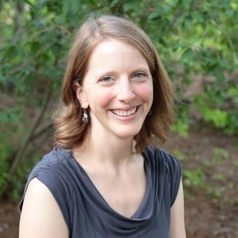
Serin Houston
Associate Professor of Geography and International Relations, Mount Holyoke College
Serin D. Houston’s research draws on qualitative methods and a geographic perspective to examine questions of equity and justice from the individual to the global scale. Her book, Imagining Seattle: Social Values in Urban Governance (2019), uses Seattle as a lens to analyze the translation of sustainability, creativity, and social justice from theory into praxis. Studying not only what policies and programs say, but also how they work in practice, Houston finds that racism and classism, matched with market-driven mandates, constrain the realization of these social values within the urban governance of Seattle, Washington.
With research assistants from Mount Holyoke, Houston investigates sanctuary policies and social movements in the United States. This research has resulted in publications about sanctuary as a process rather than a place designation, the impacts of neoliberalism on sanctuary policies, and the framing of noncitizens as either extraordinary or ordinary in sanctuary social movements.
A more recent research project focuses on climate change and human migration. In collaboration with Kiana London, Houston considers the geopolitics of climate change and migration in the Pacific region and the meaning and modes of knowledge production in such spaces. Finally, Houston’s interest in pedagogy and high impact learning has led to collaborations with colleagues at Mount Holyoke and publications about global/local community engagement and scholarship.
At Mount Holyoke, Houston mentors independent studies and teaches the following courses: Cities in a Global Context; Climate Migration; Global Movements: Migrations, Refugees, and Diasporas; Research Methods; Sense of Place, Sense of Planet; and World Regional Geography.
Less ![]()
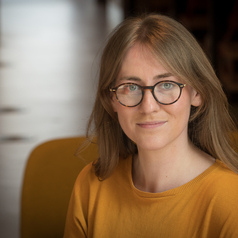
Serin Quinn
PhD candidate, Department of History, University of Warwick
I am a PhD researcher at the University of Warwick, interested in all things vegetable! I'm currently working on the introduction of tomatoes in England, and have previously worked on sweet potatoes.
Less ![]()
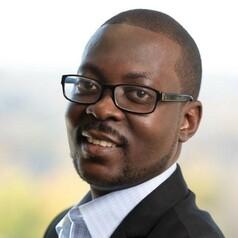
Seth Owusu-Mante
Research Fellow in International Development, Tufts University
Seth Owusu-Mante is a research fellow at the Fletcher School at Tufts University. His areas of expertise include international development and environmental policy, and global governance and international organizations. He was the president and founder of Young Diplomats of Ghana; managing editor of the Diplomatic Times in Accra, Ghana; and former director of SDGs Policy Advocacy, International Perspective for Policy and Governance (IPPG), in Accra.
Less ![]()
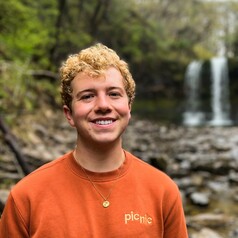
Seth Thomas
Research assistant, University of Oxford
I currently work in the Oxford Biology Department at the Nature-based Solutions Initiative, and have previously worked for the IUCN, WWF, Desert Research Institute, Oregon State University, and the University of Oxford School of Geography and the Environment. I have experience working with the CITES secretariat and was a youth UN delegate to COP15 in Montreal.
Less ![]()
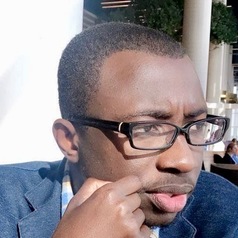
Seth Asare Okyere, PhD
Visiting lecturer, University of Pittsburg and Adjunct Associate Professor, Osaka University, University of Pittsburgh
Dr. Seth Asare Okyere is an interdisciplinary urban, environmental, and international development planner, researcher, and recognized author whose work cuts across social equity, resilience, and sustainability to cross-pollinate ideas and action for just and sustainable communities. Seth has a depth of international experience, which spans cities, communities and institutions in Africa, Europe, Asia, and North America. He has extensive experience across Academia, Think Tanks, and Civil Society Organisations as an educator, researcher, international project coordinator, consultant, supervisor/mentor and community engager. Seth is in pursuit of the sustainable development of communities through mission-focused approaches for co-producing equitable, resilient, and place-based solutions. He is the author of Urban Slums and Circular Economy Synergies in the Global South: Theoretical and Policy Imperatives for Sustainable Communities (Springer Nature).
Seth holds a PhD in Engineering (Urban Development Planning) from Osaka University, Japan, an MSc in Urban Planning and Policy Design (cum laude) from Politecnico di Milano, Italy, and BSc in Development Planning (First Class Honours) from KNUST, Ghana. Seth also holds Honor Code Certificates in Future Livable Cities from ETH Zurich, Health and Society from Harvard University and a professional certificate in Emergency Planning and Crises Management from the Federal Office for Civic Protection and Disaster Assistance (BBK) in Germany.
Less ![]()

Seth Kofi Debrah
Professor, School of Nuclear and Allied Sciences, University of Ghana
Since 2015, Seth has been instrumental in the execution of Ghana's nuclear power infrastructure development. He has been involved in several International projects including the IAEA TC projects and coordinated research projects. He has served as the chief scientific investigator and alternate for many projects. Currently, Seth is the project counterpart (for Ghana) for the IAEA TC project (GHA2005) - Establishing Nuclear Power Infrastructure for Electricity Generation. Seth is also IAEA-AFRA national coordinator for RAF2013 (Developing, Expanding, and Reinforcing Energy Planning Capabilities - Phase II).
Even though Seth focuses on nuclear power infrastructure development, he still maintains an interest in the Nuclear Engineering Department under the School of Nuclear and Allied Sciences, University of Ghana, where he serves as an associate professor of nuclear engineering.
Less ![]()

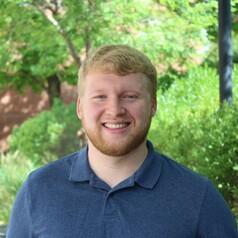
Seth T. Kannarr
PhD Student in Geography, University of Tennessee
Geography PhD Student at the University of Tennessee. My academic areas of expertise include protected areas studies, place naming, and nature and society relations. I am fascinated by protected areas such as our 'National Parks' and how factors such as a place name can shape the perceptions and experiences that people have when visiting them.
Less ![]()
- Market Data























